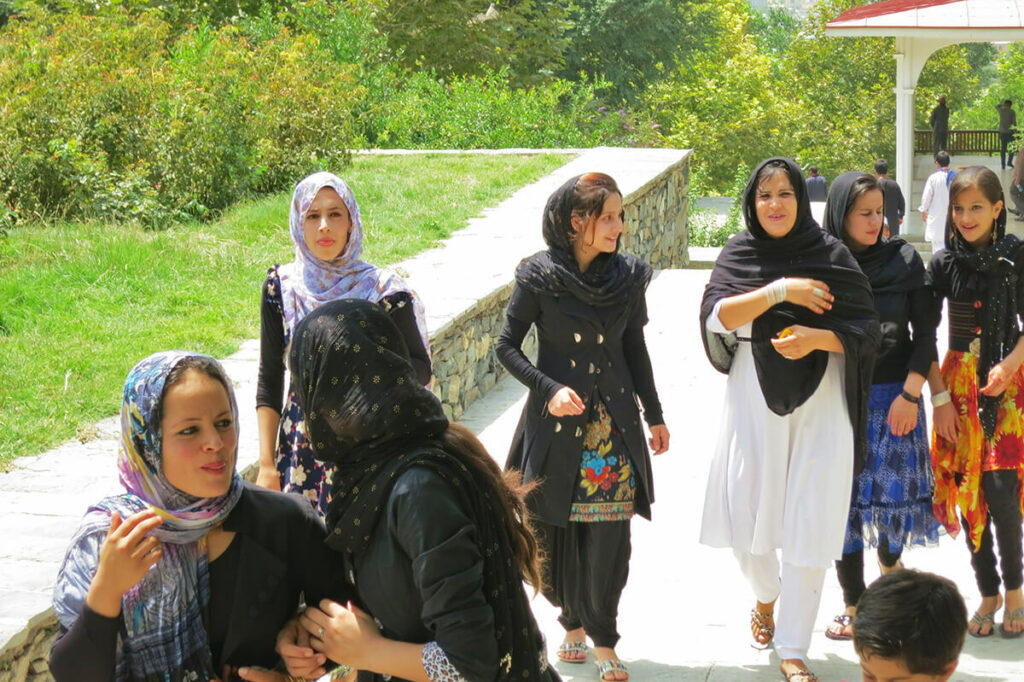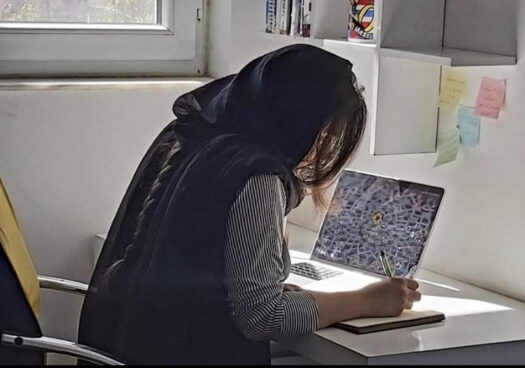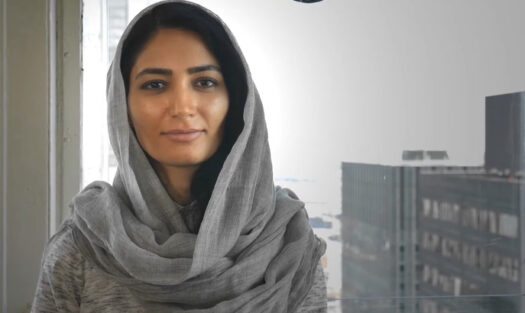
Editor’s Note: This is part of our Afghan Women project, marking two years since the Taliban takeover.
Munireh kept her camera off. Her voice traveled clearly though the speaker, but the black Zoom screen served as a chilling reminder of the ongoing erasure of women from the public eye.
When her father first received news of the Taliban’s takeover, he sent all the women in the family to Iran – but Munireh refused to go.
“I didn’t want to go there because I had to be here,” she said. “I was a teacher here.”
Before the Taliban came, she was teaching coding to young boys and girls. But after the Taliban came, the coding school shut down for three months. Now, it’s open again – but only for boys. “There were very talented girls who worked very hard,” she said. “They made mobile applications that were very good. But now I have their certificates in my home because they were not even allowed to go to the office and get them.”
Munireh, whose full name we are not using, got an online coding job after the coding school closed. She’s at home by herself for most of the day until her father and brother come home at night. She said it’s difficult to be happy that she has an online job, when she knows her students don’t have opportunities. Scholarships are scant, and she said there are a lot of scams going around disguised as scholarship advertisements. Even students who do receive scholarships to universities in other countries are having trouble obtaining visas.
“I don’t have hope anymore,” she said, her voice breaking. What followed was a long silence, and then the sound of sniffling.
At the same time, she said she wouldn’t even have a problem with the Taliban if they allowed women the same freedoms as men. She said cities like Herat and Kabul have seen a decline in civilian crime since the militant group has come into power – “but if I’m not free, I don’t like it.”
In addition to her aversion to the Taliban, she is frustrated with how quick people are to comply with the group’s strictures. “For example, [in September of 2021] the Taliban told universities the classes should be separated for men and women and they accepted it. I don’t like it. We should not accept it,” she said. “Yes, that’s the Taliban’s fault, but some of it is people doing it to themselves.”
Munireh attended a protest earlier this year at Herat University – but she told her father she was just going to a friend’s house. The protesters, mostly young girls, marched toward the city center until the Taliban dispersed them. Munireh heard later on that some girls had been arrested.
Make no mistake – she is afraid of the Taliban. But there’s one thing she’s afraid of more.
“I’m more afraid of the next decision they make for us,” she said. “When the Taliban came, they didn’t say anything to girls. But then they said girls should not go to the schools. After that, they said women shouldn’t go to university. I believe that tomorrow they will say a woman should not come out of her home. Anything is possible. And that’s why if someone tells me to come and protest, I accept.”
The Women We Talked To
The Israeli-American Journalist Who Led an Escape Mission
Danna Harman didn’t have any tools or resources, but she knew she had to do something to help the Afghan girls who reached out to her.
The Aspiring Journalist Following in the Footsteps of Her Father
Marwa Dashty’s father, a well-known journalist, was killed after the Taliban took over. Now, the 20-year-old wants to continue his legacy by becoming a journalist herself.
The Teacher Who Chose to Stay Behind
When Munireh’s father first received news of the Taliban takeover, he sent all the women in the family to Iran – but she refused to leave Afghanistan.
The Pop Star Whose Fan Helped Her Get Out
After Shakiba Teimori showed her long, flowing hair on television, it was as if she were exiled. And then she fled for real.
The Judge Who Escaped: ‘We Lost All of Our Achievement’
Since the Taliban’s return to power, women judges – who once dared to sentence men for their crimes – have been forced into hiding. We spoke to one whose identity we are protecting.
The Founder of Afghanistan’s First All-Girls Coding School
Fereshteh Forough opened Afghanistan’s first coding school for girls and women – but the Taliban’s ban on education prevents students from learning in-person.
The Mobile App Developer Secretly Working Online
Parima hides the fact that she works remotely, as many of her neighbors in Afghanistan don’t believe women should have jobs.
The College Student Getting a Fresh Start
Rodaba Noori is enjoying her new life at Bard College in upstate New York, but she still doesn’t consider it home.











